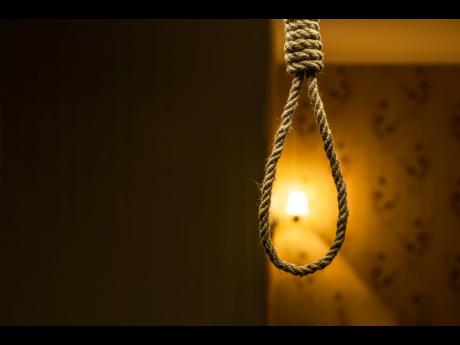COVID child suicide threat
Suicide expert Dr Donovan Thomas gets at least one call daily from a child who is contemplating ending his or her life.
He believes that the alarming ideation is a result of increased isolation caused by COVID-19 restrictions.
“Just today (Wednesday), I had a child, not even teenager yet, who was telling me about just the difficulty of being locked up in the house, not being able to go out and play with his friends as he would normally do.
The child, who reported feeling suicidal, said that his frustration was worsened by the limited access to online interaction.
Thomas said that parents often appeal for help from Choose Life International, the counselling organisation he co-founded with his wife, Faith, in 2008.
Jamaican schools were ordered closed in mid-March days after the first coronavirus case was detected. The new academic year has been pushed back for most schools until October 5.
The suicide expert cited growing separation anxiety among schoolchildren who have not been able to have face-to-face interaction with many of their friends for up to six months.
“There is this restriction, there is depression, and the confinement. Those could drive a teenager or a child to want to take their own life,” Thomas said.
HELP FROM PAHO
The Pan American Health Organization (PAHO) collaborated with the Ministry of Health and Wellness and the Ministry of Education, Youth and Information in Jamaica in July to equip a cohort of 50 trainers in mental-health literacy.
The move was to address an expected increase in mental-health needs of secondary-age schoolchildren because of COVID-19.
There have been at least two suspected cases of suicide among children in the last month.
Eight-year-old Jasmine Keeling was found hanging from a length of cord at her home in St Catherine on Saturday, August 29.
On September 26, yet another eight-year-old girl was suspected of committing suicide.
Naomi Jones was found hanging from a clothes line in Commodore, St Catherine.
A 2014 UNICEF-Ministry of Health report found that more than 60 per cent of people admitted to hospital having attempted suicide were below the age of 25. According to the Ministry of Health quarterly report, Vitals, published in May 2019, one out of four adolescents had seriously considered suicide between 2010 and 2017.
Thomas said that the triggers for child suicide vary but may be linked to death, loss, failed romantic relationships, and abuse.
“Sometimes, children and teens want to get back at those who have hurt them, but because these persons are so big and powerful, and they are so weak, so to speak, they hurt themselves, and the person who has hurt them is supposed to feel responsible. We refer to that as revenge,” Thomas told The Gleaner.
The suicide expert said that every threat and warning sign must be taken seriously.
These include “cutting behaviour, feeling hopeless, increased aggressiveness or irritability, drastic changes in behaviour and mood, engaging in risky activities, possessing lethal means”, he said.
Thomas urges parents to listen more keenly to their children and help them develop problem-solving skills. He also advised them not to leave guns and drugs within easy reach.
“Get professional help, follow up with treatment, be proactive, teach your children to resolve conflict, listen to them, speak positively over your children’s life, respond to child molestation, avoid comparing children, and take genuine interest in the individual,” Thomas said.

